You’ve probably heard a lot of rules about how much water you should be drinking every day. But how much water you need is an individualized number, based on your gender, body weight, lifestyle, and more.
We’ll get into specifics, but generally, most adults need between 9 and 13 cups (72 to 104 ounces) of water a day. And most of that should come in the form of water and other drinks, but you also get about 20% of your fluids from the foods you eat. Getting enough water is important because it helps regulate your body temperature, prevent infections, deliver nutrients throughout your body, improve digestion, and keep your skin and joints healthy. Being properly hydrated also has been linked to better sleep, clearer thinking, and improved mood.
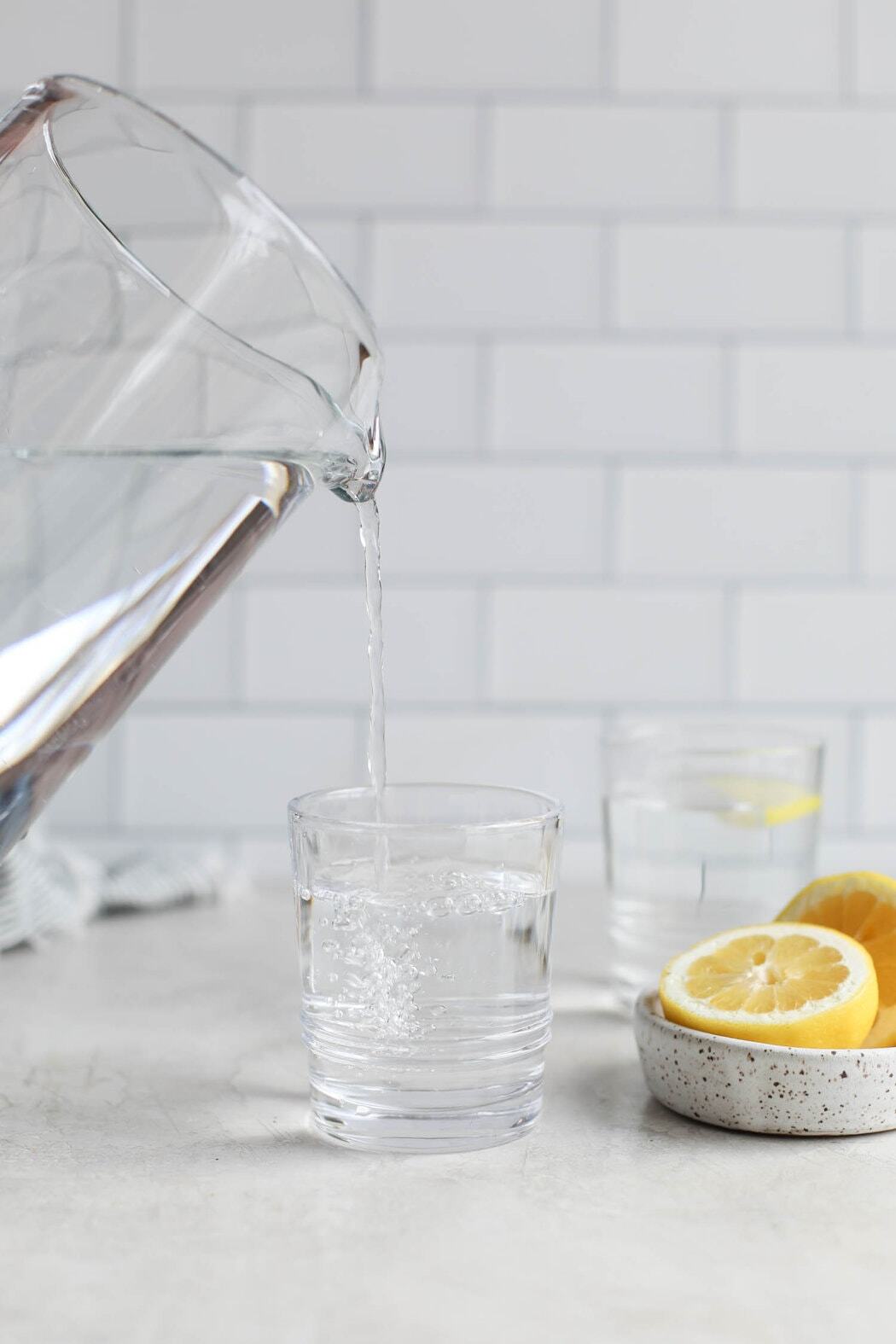
Every Body Is Different
This chart is a great starting point to understand how much water a person needs to drink based on their age, sex, and pregnancy status.
| Age Range | Average Daily Water Needs |
|---|---|
| Kids age 2-4 | 1 to 5 cups daily (8 to 40 ounces) |
| Kids age 4-8 | 5 to 6 cups daily (40 to 48 ounces) |
| Kids age 9-13 | 7 to 8 cups daily (56 to 64 ounces) |
| Teens age 14-18 | 8 to 11 cups daily (64 to 88 ounces) |
| Adult females | 9 to 11 cups daily (72 to 88 ounces) |
| Adult males | 11 to 13 cups daily (88 to 104 ounces) |
| Pregnancy | 10 cups daily (80 ounces) |
| Breastfeeding | 13 cups daily (104 ounces) |
When it comes to the daily cups of water you should be drinking, use these numbers as general guidelines for the category you fall into. Hydration is not a one-size-fits all formula. Being slightly under or over this amount on one day will not compromise your health, but try to aim for an amount that is close to this range for most days.
Also, remember that everybody is different. People with small bodies, low activity levels, or those who live in steady climates require less water than people who carry more weight, high activity levels, or people who live in fluctuating climates.
Also, take into account these things that will increase your body’s need for water:
- sickness, especially those with high fever, vomiting, or diarrhea
- increased exercise length and/or intensity
- being in extreme temperature (extremely hot or extremely cold) — staying hydrated helps you regulate body temperature, including staying warm in cold temperatures
- being pregnant or breastfeeding
- living at or visiting higher altitudes
- if you are taking creatine
To get a pretty accurate look at how much water you, individually, should be aiming for daily, we like the Hidrate app, which helps you determine water goals based on your gender, weight, age, height, activity level, and pregnancy status. And if you’re into tech, we also think the Hidrate smart water bottles are pretty cool. They sync to your smartwatch and have built-in features to remind you to drink water.
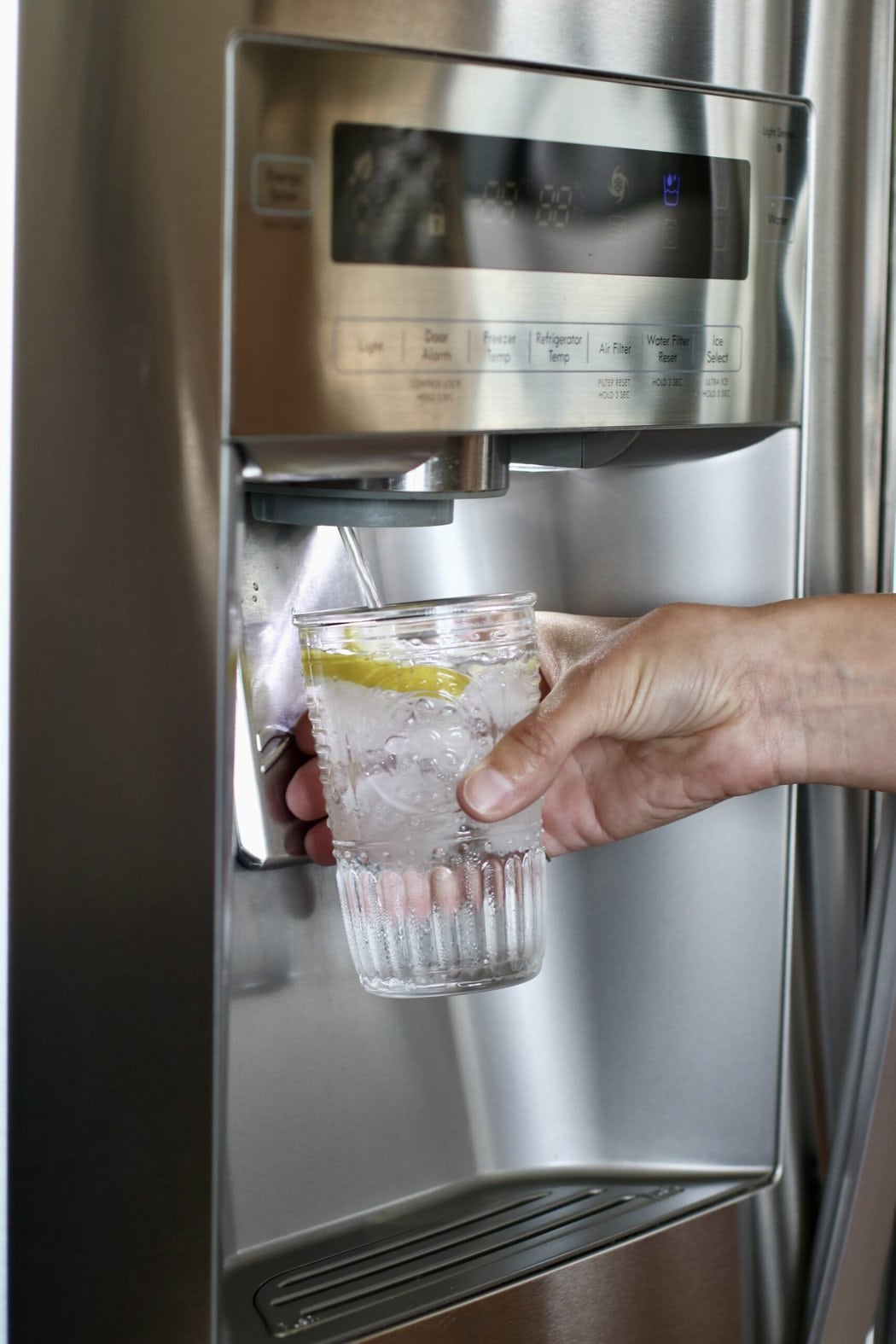
Signs You Get Enough Water
If you’re well-hydrated, you probably experience these signs of getting enough water:
- you rarely feel thirsty
- your urine is mostly pale or light yellow (like the color of dry straw) and odorless
- you have reactive skin, meaning it plumps back quickly when pinched
- your recovery time after physical activity is reasonably quick
- you urinate about every 2 hours
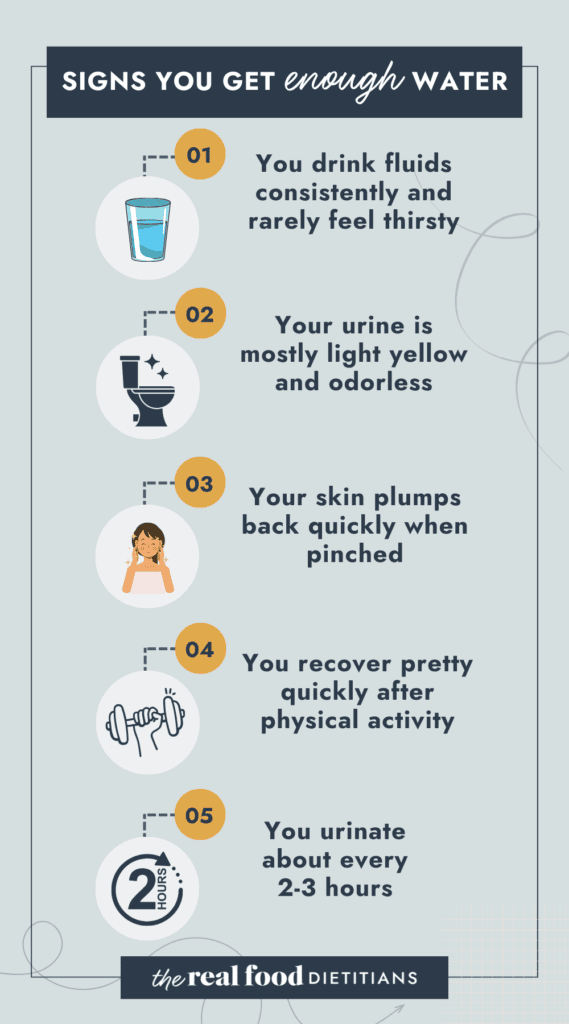
Signs Of Possible Dehydration
Your body gives you clues when it hasn’t had enough water. Here are some common signs of dehydration:
- thirst
- dizziness
- fatigue
- a resting heart rate of over 100 beats per minute (called tachycardia)
- dark yellow urine
- low urine amount
- dry mouth (called xerostomia)
- dry skin
- muscle cramps
- confusion
- constipation
- low blood pressure
- sunken eyes (called enophthalmia, and more common in elderly people)
- bad breath
- you only urinate every 6 hours or longer
- frequent urinary tract infections or kidney stones
- quick weight loss (loss of water weight)
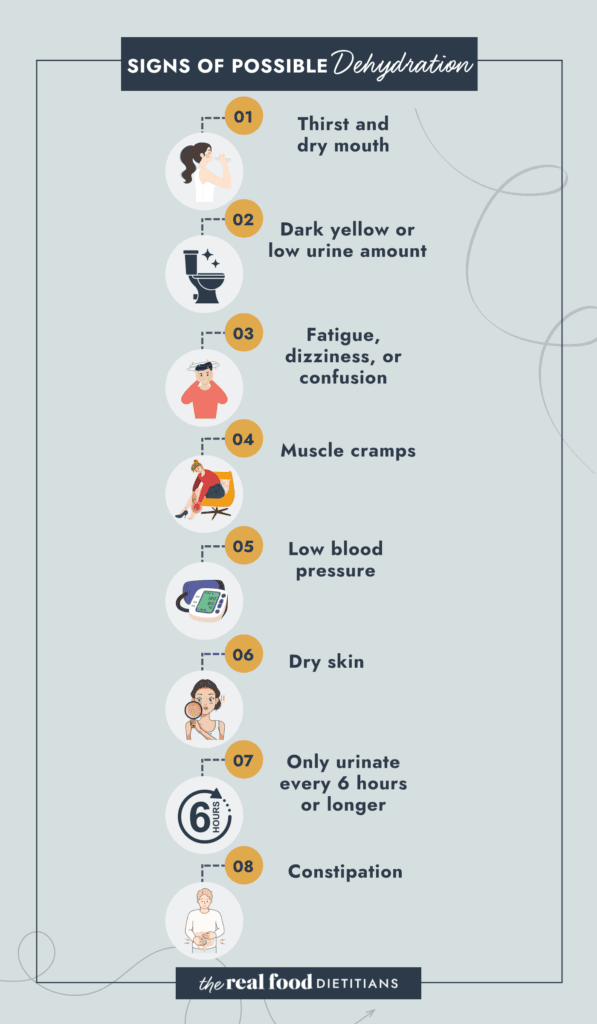
Too Much Of A Good Thing?
Drinking water is important, but it is possible to drink too much. And if that happens, you could experience health problems that range from inconvenience (like having to pee quite often) to even death (in extreme circumstances).
Overhydration, known as water toxicity, is a life-threatening condition that happens if you drink way too much water too quickly, or if your kidneys retain too much water without releasing it. This occasionally gets reported in the news, usually when it happens to an otherwise healthy person.
In both cases, the excess water in your body dilutes your body’s natural electrolytes, especially sodium to dangerously low levels. This is called hyponatremia (very low blood sodium), and signs of it include muscle cramps, nausea and vomiting, headache caused by pressure on the brain, disorientation and confusion.
People who are more susceptible to water toxicity are:
- Extreme athletes (like ultramarathoners, Iron Man athletes, and endurance cyclists)
- Military, firefighters, and physical workers in extreme training or working conditions
- People with health conditions that affect hydration, such as congestive heart failure, kidney disease, liver problems, or uncontrolled type 2 diabetes
- People with syndrome of inappropriate antidiuretic hormone (SIADH) or those using nonsteroidal anti-inflammatory drugs
In some cases, adding an electrolyte to water can help promote good hydration and prevent hypernatremia at the same time.
There is no tolerable upper intake level for water since everybody is different and normal healthy people excrete any excess water through urine and sweat. The best way to monitor that you’re getting a safe and appropriate amount of water is to monitor your urine color and pay attention to your body’s natural thirst cues. A slightly darker color of urine could be a first sign of mild dehydration.
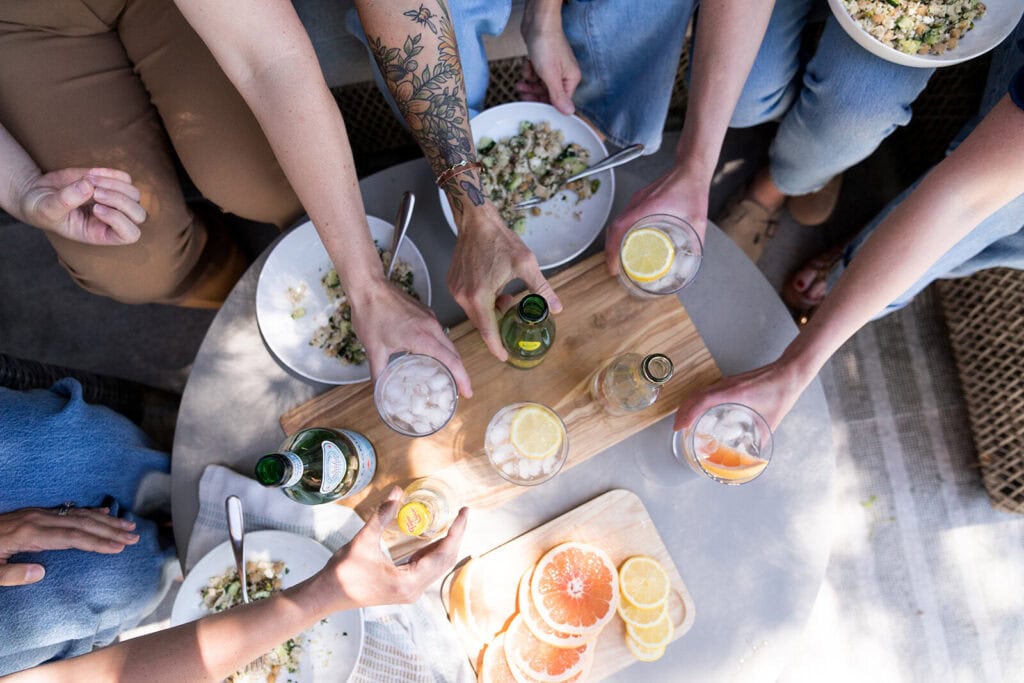
Don’t Love Drinking Plain Water? Make It Fun!
Some people love to drink plain water, but others find it to be a daunting task. Since being properly hydrated is so important for your health, don’t feel bad about “jazzing up” your water bottle if that helps you drink more. Here are some healthy (non-sugary) ways to do so:
- Make a pitcher of cucumber mint water
- Try carbonated or “bubble water” if you like a little fizz
- Add a squeeze of lemon juice or lime juice
- Stir in fresh berries, an orange slice, or cucumbers for color and flavor
Also, don’t forget that you get some of your water intake through other non-water fluids that you drink, such as coffee, tea, other caffeinated beverages, milk, sports drinks, kombucha, soda, and responsible drinking. Additionally, you also get some of your daily water intake from the foods you eat. Some of the most hydrating foods (those with high water content) are:
- Fresh fruits and vegetables
- Leafy greens and salads
- Soups, stews, and broths
- Yogurt and cottage cheese
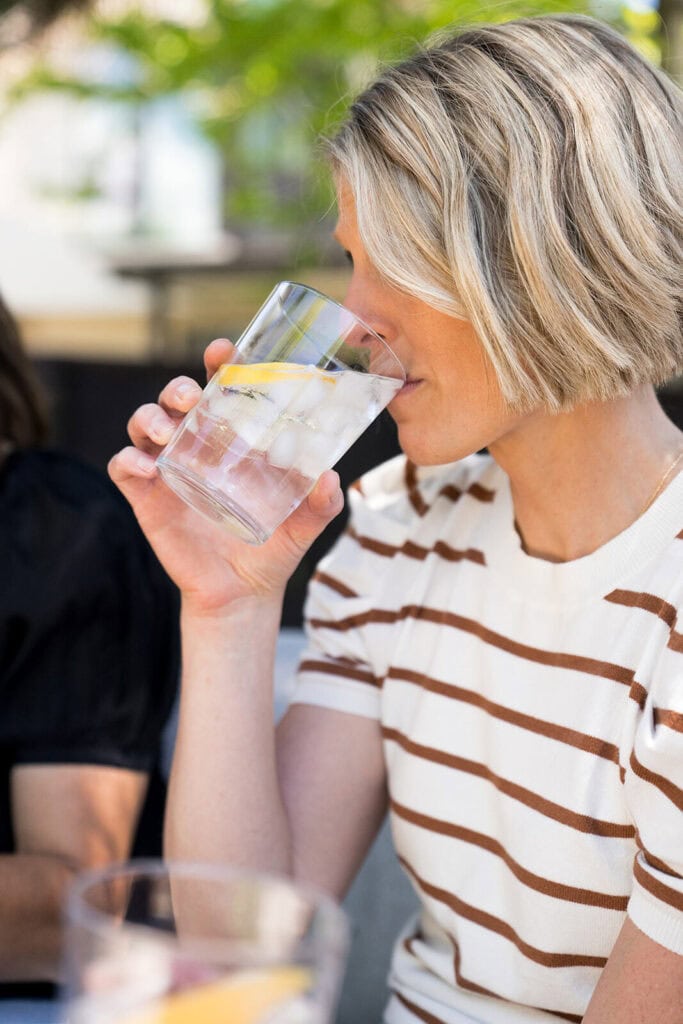
Frequently Asked Questions
Yes, all of these things count toward your water intake. Count sparkling water and tea toward your daily fluid intake the same as you would count tap water (ie: 1 cup sparkling water or tea = 1 glass of water). It’s true that tea is a diuretic (a substance that promotes urination). However, the diuretic effect does not offset hydration.
Your food intake accounts for about 20% of your daily total fluid intake.
Many scientists and dietitians say that it’s best to drink water first thing in the morning because you’ve been fasting and dehydrating overnight. Getting a glass or two of water right away is an effective way to replenish your water intake and maintain a healthy water habit.
However, there are no scientific studies that water has to be the first thing you drink. There are, however, some studies that show getting water on an empty stomach may decrease hunger and improve digestion.
The long-term health benefits of being properly hydrated through adulthood are:
– Lower rates of acute diseases, like colds and flus
– Lower rates of chronic diseases, like heart disease and kidney disease
– Slower rates of aging
– Improved brain performance
– Improved skin health, especially in the stratum corneum, the outermost layer of the skin, which is your body’s first line of defense, as well as acting as a lubricant for joints
For ultimate success, we highly recommend reading the tips in the full blog post above. All photos and content are copyright protected. Please do not use our photos without prior written permission. If you wish to republish a recipe, please rewrite the recipe in your own unique words. Link back to the source recipe here on The Real Food Dietitians. Thank you!
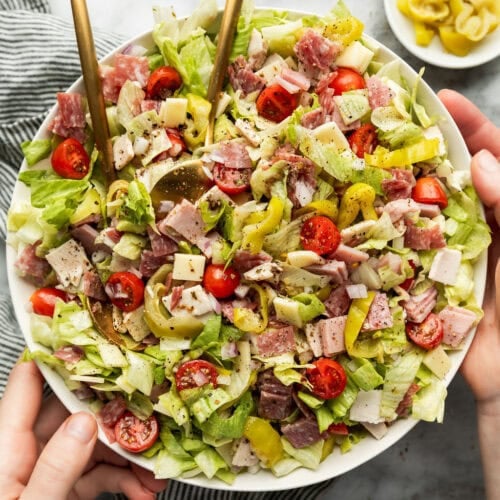
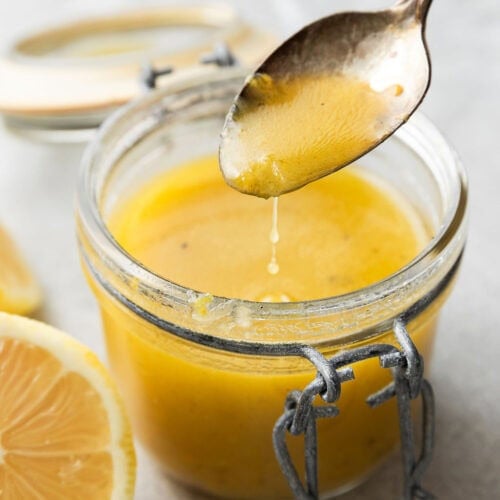
I love water, and I really wish I could drink an adequate amount! However, I have to run to the washroom ALL THE TIME if I drink more. My system is “drink one -pee two!” Because I work in an office full time, I can’t be running to the washroom every hour or so.
Any suggestions??
Hi Ingrid! If you’re not already doing this, it could be helpful to drink small amounts of water throughout the day instead of glassfuls at a time.